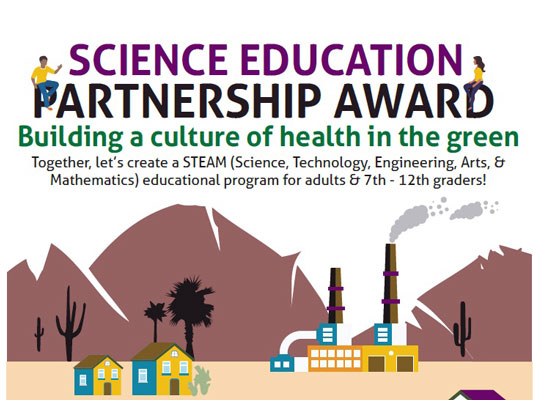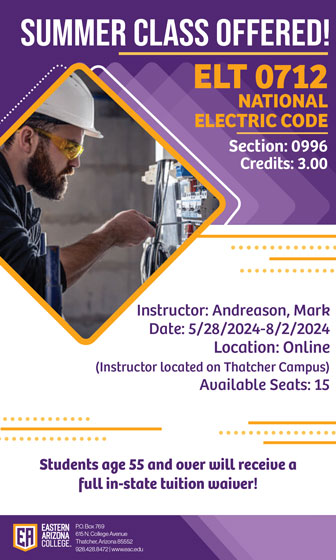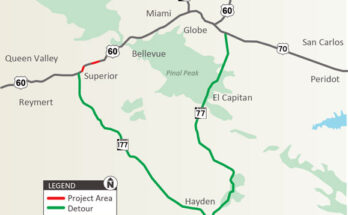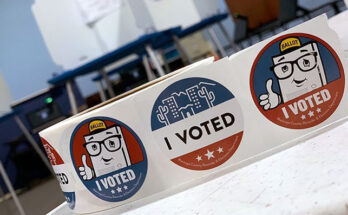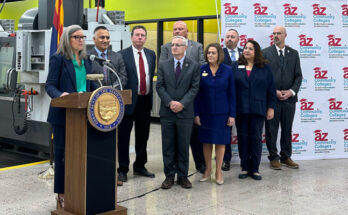By Carol Broeder
GLOBE – The University of Arizona’s Department of Environmental Science won grant funding to launch a new environmental science summer camp for 7-12 graders in Globe-Miami and is hiring three local part-time workers to make it happen.
The new hires will collaborate with the Community Advisory Board that convened this spring, and to make the science summer camp a success, the job tasks of the new hires include creating a Youth Advisory Board.
Work is part-time (10 hours per week) with an hourly pay range from $16.76 – $21.90; depending upon experience.
These positions will be in Globe-Miami; Hayden-Winkelman, Superior, and San Manuel. Read more at the job posting: https://arizona.csod.com/ux/ats/careersite/4/home/requisition/14582?c=arizona
Questions? Call Research Scientist William Borkan at (520) 621-0494 or email wborkan@arizona.edu link above lists these job duties:
* Recruiting adults and youth for the community and youth advisory boards and environmental science certification programs.
Recruitment activities include presenting to local schools, youth organizations, and government; attending community fairs and other public events to inform the community; and working with local leaders to increase access to information and project promotion.
In this capacity, the incumbent will facilitate the participation of local adults and youth in the community and youth advisory boards and environmental science certification programs and provide ongoing follow-up and connections throughout the project with participants.
* Informing and actively participating in the design of environmental science and art summer certification programs.
In some cases, the incumbent might help teach an educational module. Additionally, the incumbent will assist with survey administration as well as formative, summative, and program evaluation.
* Develop and nurture relationships with local schools, youth organizations, and government.
Assist with the facilitation of the youth and community advisory boards. Participate in networking meetings.
Reduce stigma and other barriers to science by providing culturally/linguistically competent and reliable information to community members.
* Attend and participate in project planning meetings.
Organization and documentation are key!
Keep a log of all activities and properly document observations on a provided iPad or laptop using Microsoft Office and Google services.
Develop an ongoing list of partners to engage and ensure the success of the Science Partnership Award.


